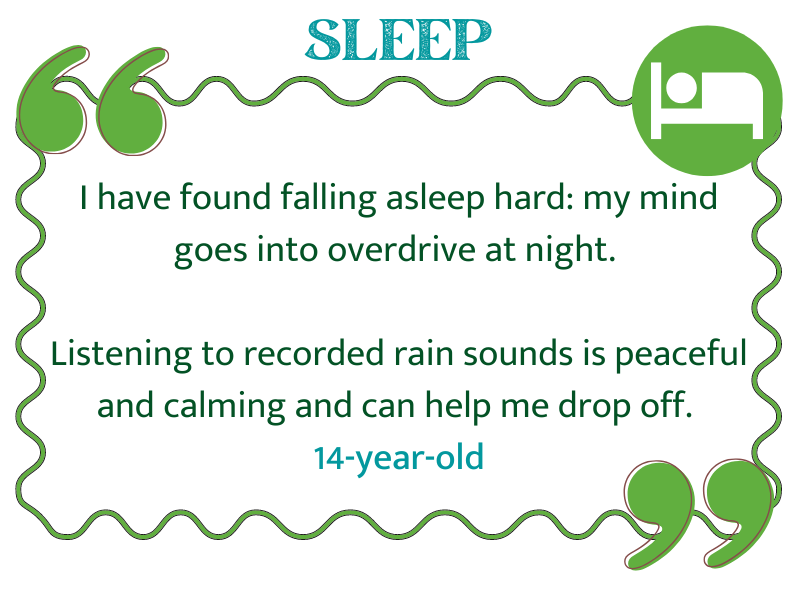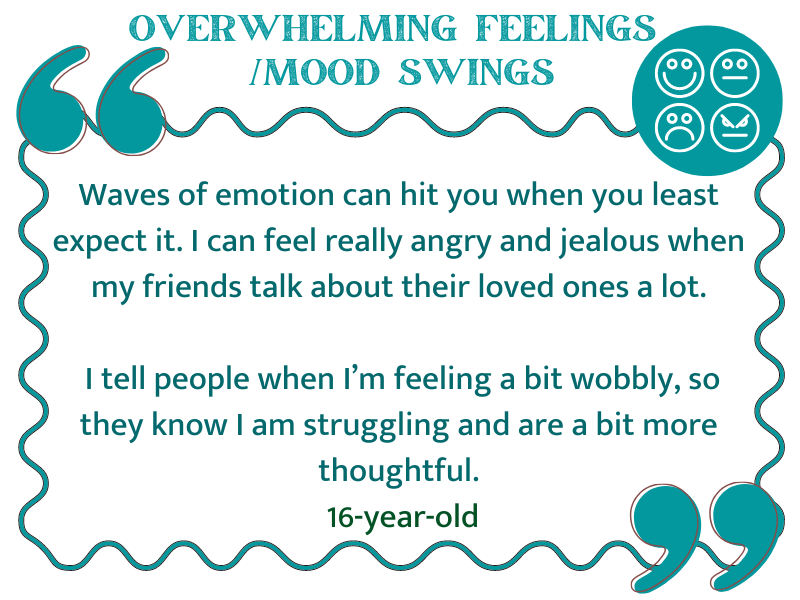Managing emotions

Why are some emotions more uncomfortable to experience than others?
There are no ‘bad’ emotions: all emotions tell us something about where we are and what we might need, and some feel nicer than others. Our uncomfortable emotions, or emotional pain, give us signs we need to actively care for ourselves: just
as a pain in our leg means we might need to rest, emotional pain also can show we need some care.
When we feel anxious, afraid, or overwhelmed, our brains and our bodies act in a way that protects us from ‘threat’, just as they do when there’s a physical threat that we need strength or speed to escape. Usually, when a physical danger has disappeared, our brain will notice this, and we start to feel calmer. But when we’re living with an emotional issue that lasts a while, we adapt to this and continue to feel ‘under
threat’. Living on ‘high alert’ is stressful and, over time, can make us feel emotionally drained and often physically unwell.
Is it all in my head?

In a word, no!
Stress may start in the brain, but there are real physical reactions to stress hormones that can affect us too.
What's going on under the surface?
When your brain is stimulated by a perceived ‘threat’ (physical or emotional), it begins a chain reaction to help you to deal with it. An area of the brain called the amygdala sends messages to other areas of your brain and body telling them to respond; this is sometimes called your ‘fight or flight’ response. One area of the brain (the hypothalamus) will begin to increase your heart rate, blood pressure, and breathing rate. Another area (the pituitary gland) sends messages down to your body to release stress hormones: adrenaline and cortisol.
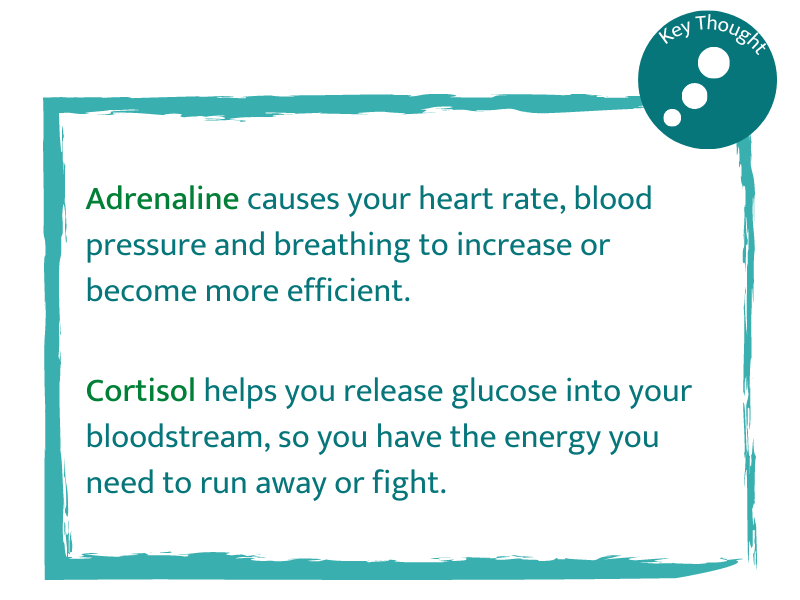
How do stress hormones make you feel?
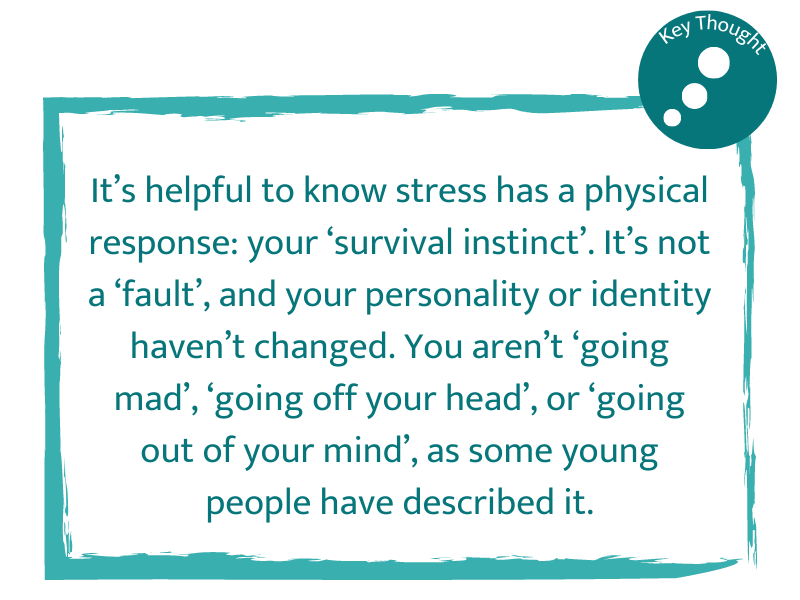
Together these hormones are designed to help you, but when the ‘threat’ is an emotional one, such as when you learn that someone you love has died, they can make you feel on edge, jittery, short-tempered, out of control, panicky, or angry. And because grief does not suddenly disappear – like the threat of an angry dog would once you’ve escaped – your brain and body can stay in this heightened state for quite a while, affecting the way you think, plan, and organise yourself.
What can i do to feel calmer?
The good news is there are lots of things you can do to help yourself, and that mostly means doing things you enjoy! Whether it’s sport or exercise, art, craft, music, writing or journaling, getting outdoors, snuggling a pet, or talking to friends, family, or another trusted adult, ask yourself: what will make me feel a bit better in this moment? A good balance of physical and creative activities and talking about things (if you can) will really help.
At times when big emotions are getting in the way, it can be hard to even think clearly and decide what to do. If you’re feeling completely overwhelmed, the best trick is to use your breath. The side of your nervous system that causes your raised heart and breathing rate and blood pressure (‘sympathetic’) can be actively managed by switching on its opposite side (‘parasympathetic’) and a great way to do this is by controlling your breathing.
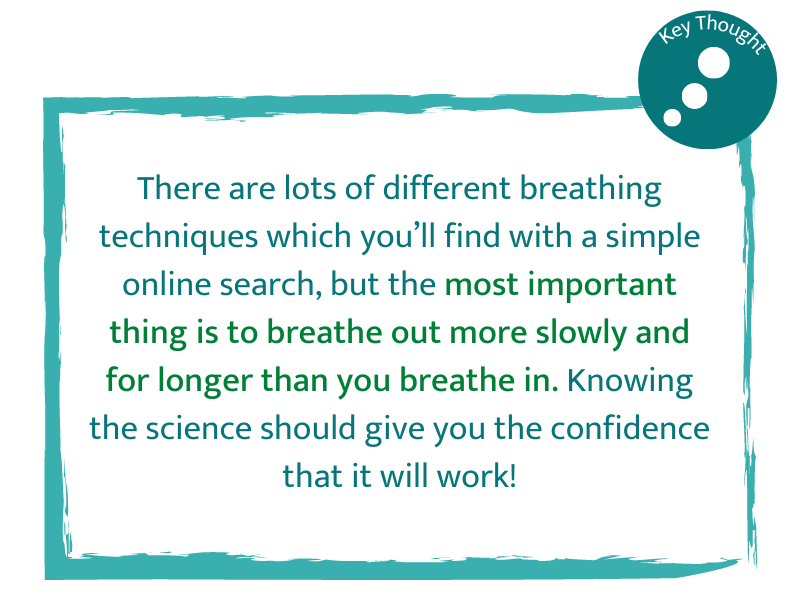
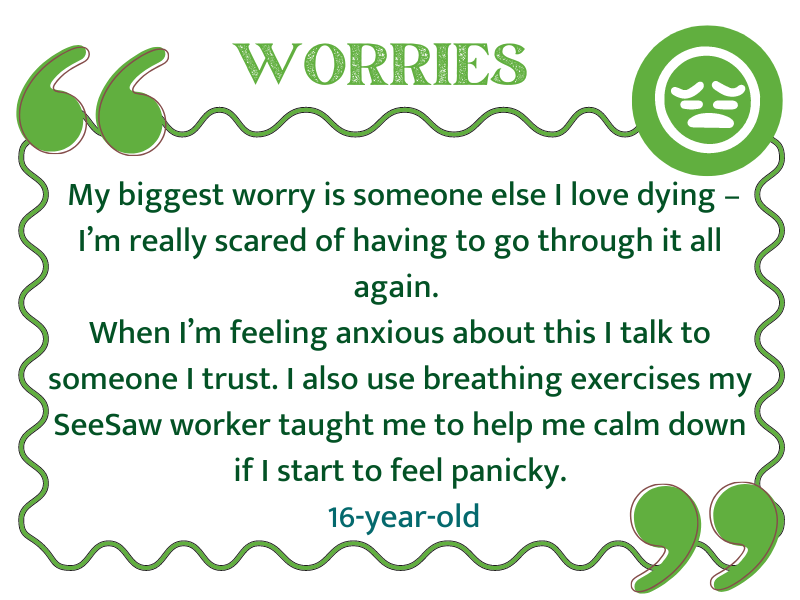
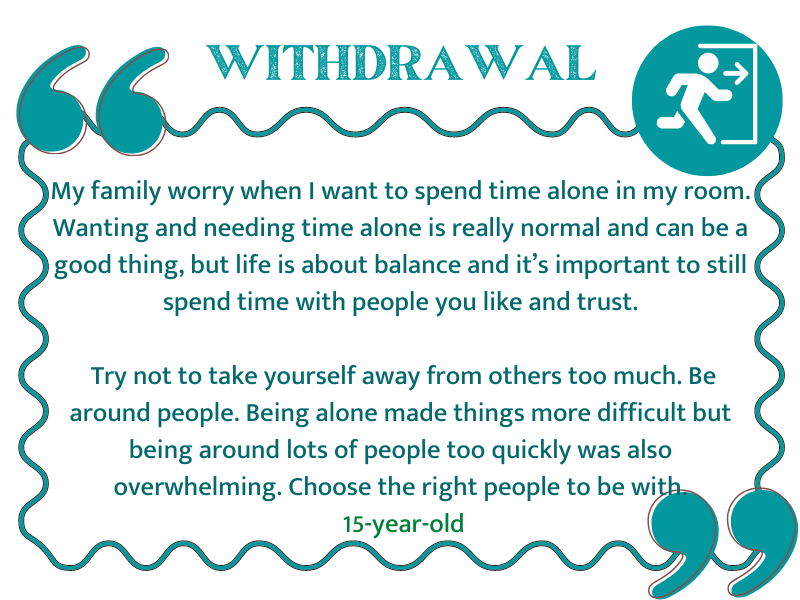

What young people say helps them
